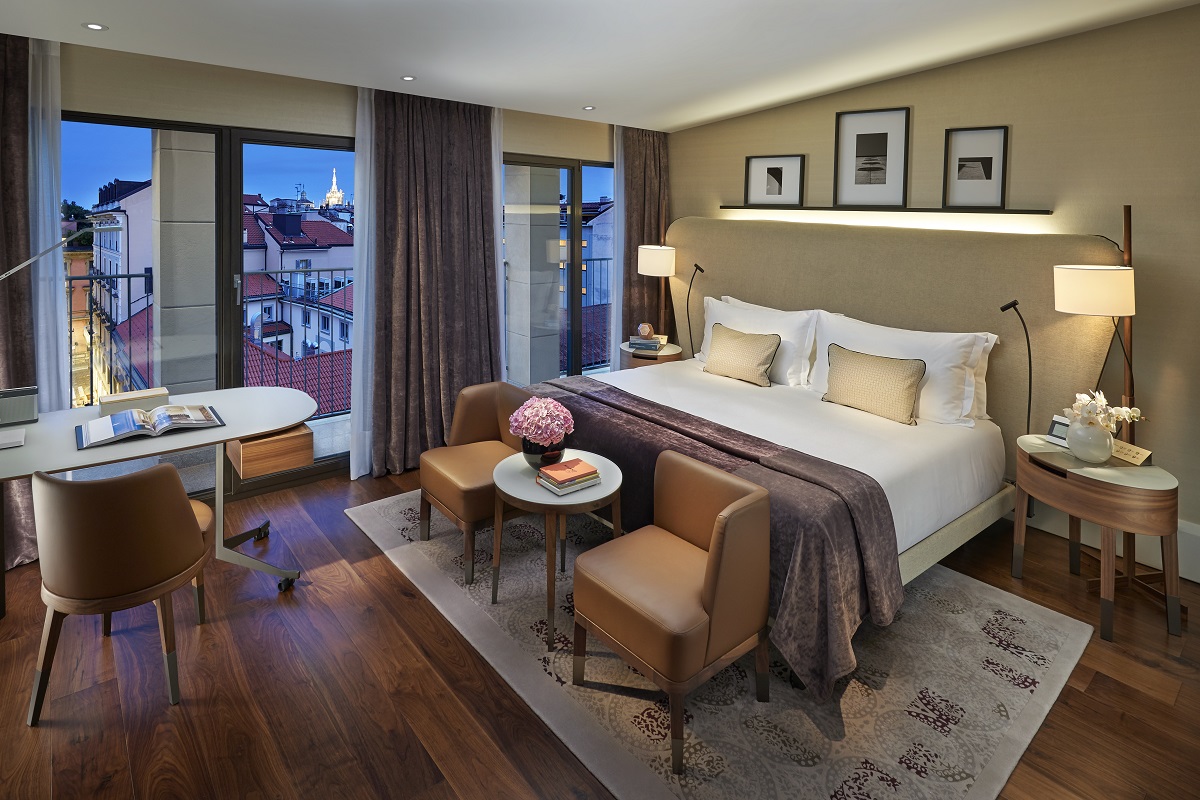
The Mandarin Oriental Hotel Group has long been synonymous with luxury, elegance, and exceptional service. As we navigate through 2025, the brand continues to redefine the standards of hospitality by embracing innovative practices and expanding its global footprint. This article delves into the latest developments, societal relevance, and the impact of Mandarin Oriental’s innovations on the hospitality industry and beyond.
A Legacy of Excellence
Established over six decades ago, Mandarin Oriental has grown from its Asian roots into a global brand, operating 41 hotels, 12 residences, and 24 exclusive homes across 26 countries and territories. Each property reflects the group’s oriental heritage, local culture, and unique design, creating unparalleled experiences for guests worldwide.
Embracing Sustainable Practices

In an era where environmental consciousness is paramount, Mandarin Oriental is leading the charge in sustainable luxury hospitality. A significant initiative is the integration of artificial intelligence (AI) to combat food waste. By the end of 2025, the group aims to implement Winnow’s AI technology across all its 40 hotels. This decision follows successful pilot programs in Miami, Hong Kong, London, and Dubai, where a remarkable 36% reduction in food waste was observed. These efforts align with the United Nations’ Sustainable Development Goal 12.3, aiming to halve global per capita food waste by 2030.
The AI system comprises a camera, smart scale, and tablet. The camera, equipped with computer vision trained to identify over 600 food items, automatically recognizes discarded food. The system then calculates the weight and cost of the waste, uploading the data to the cloud for analysis. This information empowers kitchen teams to optimize operations, adjust preparation techniques, and develop zero-waste menus, thereby reducing environmental impact and operational costs.
Read Also: Top 10 Unique Boutique Hotels Around the World for Your Next Getaway
Expanding Global Presence
Mandarin Oriental’s commitment to growth is evident in its recent expansions: – **London**: The new Mandarin Oriental Mayfair, located on Hanover Square, offers luxurious accommodations starting at $2,000 per night. Designed by RSHP, the hotel blends contemporary style with the surrounding Georgian architecture. Guests can enjoy dining experiences curated by Michelin-starred chef Akira Back and relax in a state-of-the-art spa featuring a 25-meter pool, vitality pool, sauna, and steam room. – **Greece**: In Costa Navarino, a burgeoning luxury destination on Greece’s southwest coast, Mandarin Oriental has opened a new property.
This resort offers workshops connecting guests to local culture, such as natural silk dyeing with designer Christiana Vardakou. The area boasts upscale accommodations, golf courses, spas, and cultural experiences, making it a prime destination for luxury travelers. – **Oman**: Muscat, Oman’s capital, has welcomed a new Mandarin Oriental hotel, contributing to the city’s evolving luxury landscape. Known for its serene ambiance and rich cultural heritage, Muscat offers visitors a peaceful and culturally rich vacation experience, distinct from the bustling atmospheres of neighboring cities like Dubai and Abu Dhabi.
Introducing Branded Residences
Catering to the growing demand for exclusive living experiences, Mandarin Oriental has ventured into the “branded residences” market. This concept combines the privacy of homeownership with the services and amenities of a five-star hotel. Residents enjoy access to gourmet dining, 24/7 concierge services, housekeeping, and exclusive facilities such as rooftop pools and gardens. Notably, the brand manages the most expensive penthouse in Barcelona, sold for €40 million. These properties have demonstrated a consistent increase in value, averaging 25% higher than other luxury real estate without branding.
Impact on Society and the Hospitality Industry
Mandarin Oriental’s innovative approaches have far-reaching implications: – Sustainability Leadership: By adopting AI to reduce food waste, the group sets a precedent for environmental responsibility in luxury hospitality. This initiative not only minimizes ecological footprints but also encourages other industry players to adopt similar practices. – Economic Growth: The expansion into emerging luxury markets like Costa Navarino and Muscat stimulates local economies through job creation, infrastructure development, and increased tourism. These investments enhance the global appeal of previously underrepresented destinations. – Elevated Living Standards: The introduction of branded residences offers affluent individuals the opportunity to experience hotel-like services in the comfort of their homes. This trend reflects a shift towards integrated living solutions, blending luxury, convenience, and exclusivity.
Looking Ahead
As Mandarin Oriental continues to innovate and expand, its commitment to excellence remains unwavering. The integration of sustainable technologies, strategic global growth, and the introduction of branded residences position the group at the forefront of luxury hospitality. These efforts not only enhance guest experiences but also contribute positively to societal and environmental well-being.
In a world where travelers increasingly seek authentic, sustainable, and luxurious experiences, Mandarin Oriental’s initiatives resonate deeply. By staying true to its heritage while embracing modern advancements, the brand ensures its legacy of excellence endures for generations to come.
Frequently Asked Questions
Q: What sustainability initiatives has Mandarin Oriental implemented recently?
A: Mandarin Oriental has integrated AI technology from Winnow to reduce food waste across all its hotels, achieving a 36% reduction in pilot programs. This initiative aligns with global efforts to halve food waste by 2030.
Q: Where has Mandarin Oriental expanded its presence recently?
A: The group has opened new properties in Mayfair, London; Costa Navarino, Greece; and Muscat, Oman, offering luxurious accommodations and unique cultural experiences in these locations.
Q: What are branded residences offered by Mandarin Oriental?
A: Branded residences combine private homeownership with five-star hotel services, providing residents with amenities like gourmet dining, concierge services, and exclusive facilities. These properties have shown higher value appreciation compared to non-branded luxury real estate.
Q: How does Mandarin Oriental’s expansion impact local communities?
A: The group’s expansion into new markets stimulates local economies through job creation, infrastructure development, and increased tourism, enhancing the global appeal of these destinations.
